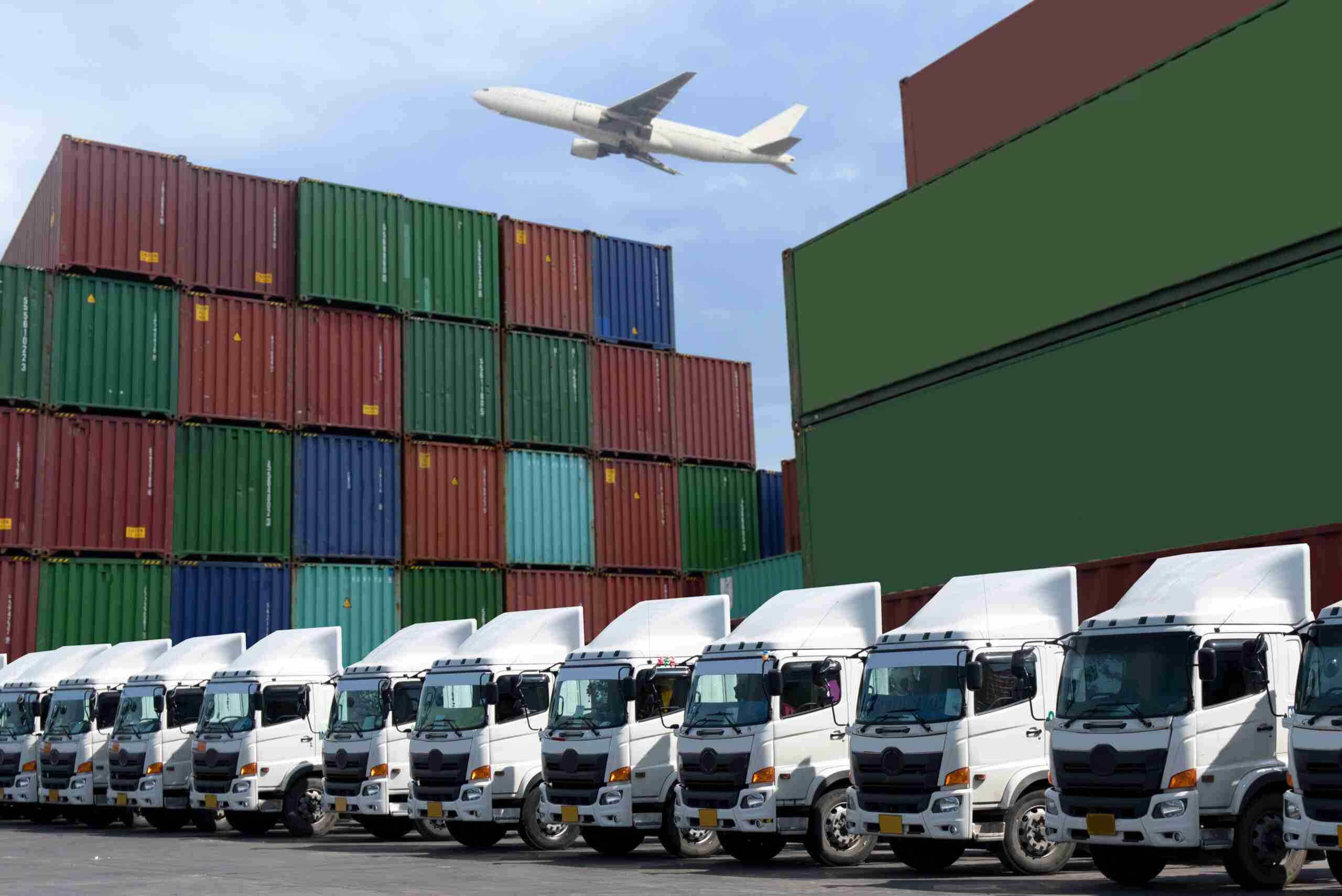Our Terms & Conditions | Our Privacy Policy
How Technology is Driving a New Era of Logistics
Reading Time: 3 minutes

The world of freight logistics has undergone a profound transformation in recent years. With increasing globalization, shifting consumer demands, and the need for faster, more transparent supply chains, businesses are under pressure to adapt.
In 2025, freight is no longer just about moving goods efficiently—it’s about moving them intelligently. The industry is seeing a widespread shift toward AI-driven decision-making, real-time shipment tracking, automation, and sustainability. These advancements are not just improving efficiency; they are reshaping the very foundation of modern logistics.
The Rise of Smart and Connected Supply Chains
Traditionally, logistics operations have been burdened by inefficiencies, manual tracking, and fragmented communication between stakeholders. However, digital transformation has brought about a new era where data-driven insights, automation, and end-to-end visibility enable businesses to operate with unprecedented precision.
Today, logistics companies are investing in AI-powered systems, IoT-enabled tracking, and automated freight management to streamline operations, cut costs, and enhance supply chain resilience.
Key Technologies Defining Freight Logistics in 2025
Real-Time Tracking: Full Visibility, Fewer Disruptions
One of the biggest pain points in freight logistics has historically been a lack of visibility once shipments are in transit. In 2025, businesses now rely on real-time tracking technology that provides complete control over their shipments.
With IoT-powered sensors and GPS tracking, logistics teams can:
Monitor shipments in real time, reducing uncertainty and improving delivery accuracy
Receive instant alerts on potential disruptions, allowing for quick rerouting
Ensure temperature-sensitive goods are transported safely, with live environmental condition tracking
Prevent cargo tampering and loss, improving security and reliability
Real-time tracking has shifted from being a premium feature to an industry standard, ensuring that businesses can anticipate delays rather than react to them.
AI-Driven Route Optimization: Smarter, More Efficient Freight Movement
The increasing complexity of supply chains, rising fuel costs, and fluctuating demand have made route optimization a top priority for logistics providers. AI-powered systems are transforming freight movement by:
Analyzing traffic patterns, weather conditions, and road congestion to suggest the fastest, most fuel-efficient routes
Optimizing vehicle loads, ensuring trucks operate at maximum efficiency
Reducing operational costs, lowering fuel consumption, and minimizing unnecessary miles
Improving last-mile delivery efficiency, a crucial factor in e-commerce-driven freight demand
By leveraging predictive analytics and machine learning, companies are moving freight more efficiently while reducing costs and environmental impact.
Automation and AI in Freight Management
The freight industry of 2025 is increasingly defined by automation and AI-driven logistics management. These innovations are streamlining supply chain operations by:
Automating warehouse operations, from inventory sorting to order fulfillment
Enhancing predictive demand forecasting, reducing overstock and supply chain bottlenecks
Digitizing freight documentation, minimizing errors and improving processing speeds
Using AI-powered chatbots for customer service, reducing response times and improving communication
With these advancements, logistics companies can operate with greater speed, precision, and cost-effectiveness than ever before.
The Shift Toward Sustainable Freight Operations
Sustainability is no longer a future goal—it’s a present-day necessity. Businesses are under increasing pressure to lower their carbon footprint, meet regulatory requirements, and adopt greener logistics solutions.
Key sustainability trends in 2025 include:
Fuel-efficient routing, using AI to determine the most eco-friendly shipping paths
Electric and hydrogen-powered freight vehicles, reducing dependency on fossil fuels
Eco-friendly packaging and circular supply chains, minimizing waste
Carbon offset programs, ensuring logistics companies operate with environmental responsibility
With both regulatory bodies and consumers demanding greener supply chains, businesses that prioritize sustainability will stay ahead of the competition.
Navigating Challenges in a Tech-Driven Logistics Industry
While technology offers immense potential for improving efficiency, reducing costs, and enhancing visibility, businesses must also navigate new challenges. Some of the biggest considerations in 2025 include:
Cybersecurity Risks – As logistics operations become more digital, companies must invest in stronger cybersecurity measures to protect sensitive shipment data.
Technology Integration – Many businesses struggle with integrating new technologies into
their existing freight management systems. Choosing scalable, flexible solutions is crucial.
Workforce Adaptation – The rise of automation does not eliminate the need for skilled logistics professionals.Companies must invest in employee training to bridge the gap between human expertise and technology.
By addressing these challenges head-on, logistics providers can fully harness the power of next-generation freight technology without disruption.
Driving the Future of Freight with Freightzy
As the industry evolves, businesses need logistics partners that understand both the challenges and opportunities of modern supply chains. Freightzy provides technology-driven logistics solutions that empower businesses to track shipments in real time, improve route efficiency, and integrate automation for greater supply chain visibility.
Whether you’re looking to streamline operations, reduce shipping costs, or enhance logistics transparency, having the right freight partner makes all the difference.
Get ahead in the future of freight—book your rate quote today!
Images are for reference only.Images and contents gathered automatic from google or 3rd party sources.All rights on the images and contents are with their legal original owners.



Comments are closed.